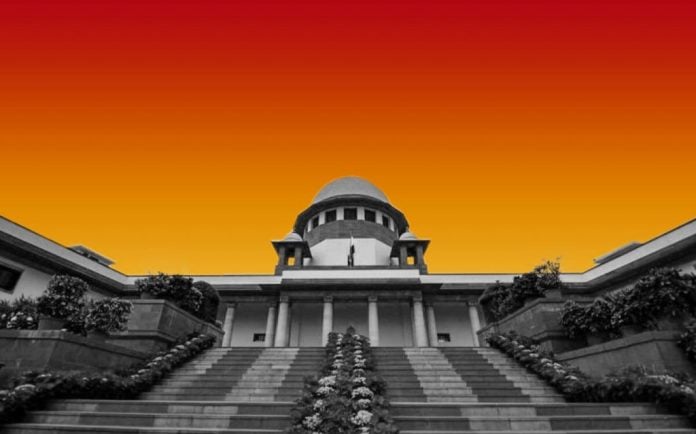The Supreme Court on Wednesday ordered for implementation of the revised pay scale for judicial officers, as recommended by the Second National Judicial Pay Commission, with effect from January 1, 2016.
The order was passed by a bench comprising Chief Justice N.V. Ramana, Justice Krishna Murari and Justice Hima Kohli.
Both the Centre and the states were directed to pay the arrears to the officers in three instalments – 25 per cent in three months, another 25 per cent in next three months and balance by June 30, 2023.
The top court of the country also observed that it was imperative for the revision of pay structure immediately, since judicial officers were not covered by the Pay Commission constituted by the State and the Government of India.
It said the pay scales of government servants were raised in some states every five years and once in 10 years in Central government, however, Judicial officers are not covered by the pay commission constituted by both the states and the Centre.
There was an imperative need to revise the pay structure immediately.
A petition was filed in the top court of the country by All India Judges Association (AIJA) for constitution of All India Judicial Commission to review the service conditions of the judges of the district judiciary.
Earlier on January 6, 2022, the Apex Court had observed that the two issues, which were pending for consideration related to Pay Scales, were the subordinate Judiciary and the other related to pensionary/retiral benefits.
The Supreme Court constituted the Second National Judicial Pay Commission in 2017, for reviewing the pay scale and other conditions of Judicial Officers belonging to the subordinate judiciary all over the country.
A Bench of Justice J. Chelameswar and Justice Abdul Nazeer had appointed former Supreme Court Judge, Justice P.V. Reddy as the Chairman of the Commission and former Kerala High Court Judge and Senior Supreme Court lawyer R. Basant as its member.
Senior Advocate Gourab Banerji, along with Advocates Mayuri Raghuvanshi and Purvat Wali, represented the petitioner AIJA.


